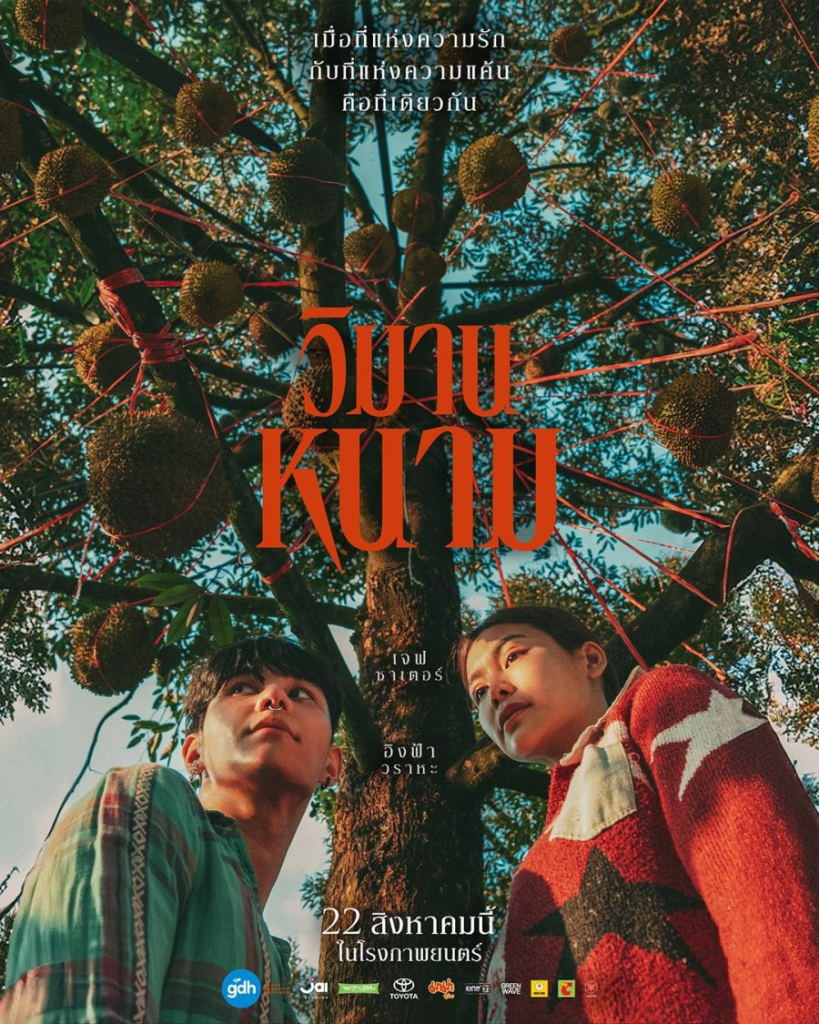
Honestly, I had zero expectations for the film since I didn’t know much about it. Given the landscape of Asian, especially Thai, BL series, I try to keep my hopes in check. Thankfully, this film turned out to be a delightful surprise. It tackles a topic that many films shy away from: What exactly are “rights”? Are they inherent to everyone, regardless of age, background, culture, or other circumstances, or do we have to earn them? Can the law dictate these rights, or do we simply assume we’re entitled to them based on tradition or circumstance? This question takes on a different weight for gay couples in countries where the law doesn’t recognize their relationships. The film presents a story from such a viewpoint.
Thongkam and Sek are a gay couple who pour their life savings into a durian orchard. Thongkam even sells his house to fund the venture. They get married, despite the law not recognizing their union. One night, while working on the farm, Thongkam suffers a tragic accident and dies, as the doctors can’t get a signature from a “family” member—his husband isn’t legally recognized as family. Consequently, the assets now pass to Sek’s mother, who lives with her adopted daughter, Mo. Both mother and daughter have their own ulterior motives. Swallowing his pride, Thongkam stays behind, hoping to reclaim what’s rightfully his, but a cat-and-mouse game ensues between him and Mo. Mo believes that after her mother’s death, everything will belong to her, so she invites her brother to the farm to help. Unbeknownst to them, the brother and Thongkam fall in love while Mo schemes to secure the orchard in her name, even going so far as to blackmail her mother into signing everything over before she dies. Mo then nearly kills her mother and marries a man to legalize her claims.
By this point, Thongkam is exhausted. He and Sek decide to sell some durians, but Mo catches them, leading to a physical confrontation. In a tragic twist, Mo’s husband accidentally kills her brother. Both Mo and Thongkam realize that all their fighting has been futile, as they continue to lose loved ones. Ultimately, Thongkam leaves the orchard, having lost his love twice.
The film is packed with intense emotions, relentless melodrama, and shocking twists, creating an exhilarating narrative. None of the characters are straightforward; they’re complex, each with their own motivations. The story thrives on intense drama, weaving secrets and scandals with deceit and betrayal. Thongkam’s schemes to reclaim what’s his are particularly enjoyable to watch, especially knowing the law is against him. At times, the film veers into dark comedy territory. Mo is equally compelling; even if you disagree with her methods, her desperation is relatable. Each character has nuances that add depth to this intriguing story, although some events can escalate unreasonably due to the film’s tendency for over-the-top dramatization.
The portrayal of the gay relationship is well done and emotional, especially in the scene where Thongkam is denied the chance to sign papers in the hospital while Sek lies on his deathbed. While Thongkam and Sek are married, we don’t get much backstory on their relationship, yet we want to believe in their love. In contrast, the romance between Mo’s brother and Thongkam feels abrupt and lacking depth. You might not agree with the ending, but in situations like this, expecting a happy resolution is unrealistic. Greed is inherent in people, and eventually, someone has to concede.
All the actors deliver strong performances, and I particularly enjoyed the scenes in the orchard, which offer insight into the hard work that goes into cultivating durians. I’ve gained newfound appreciation for those who work on farms. Overall, the film was an enjoyable watch that prompts reflection.





